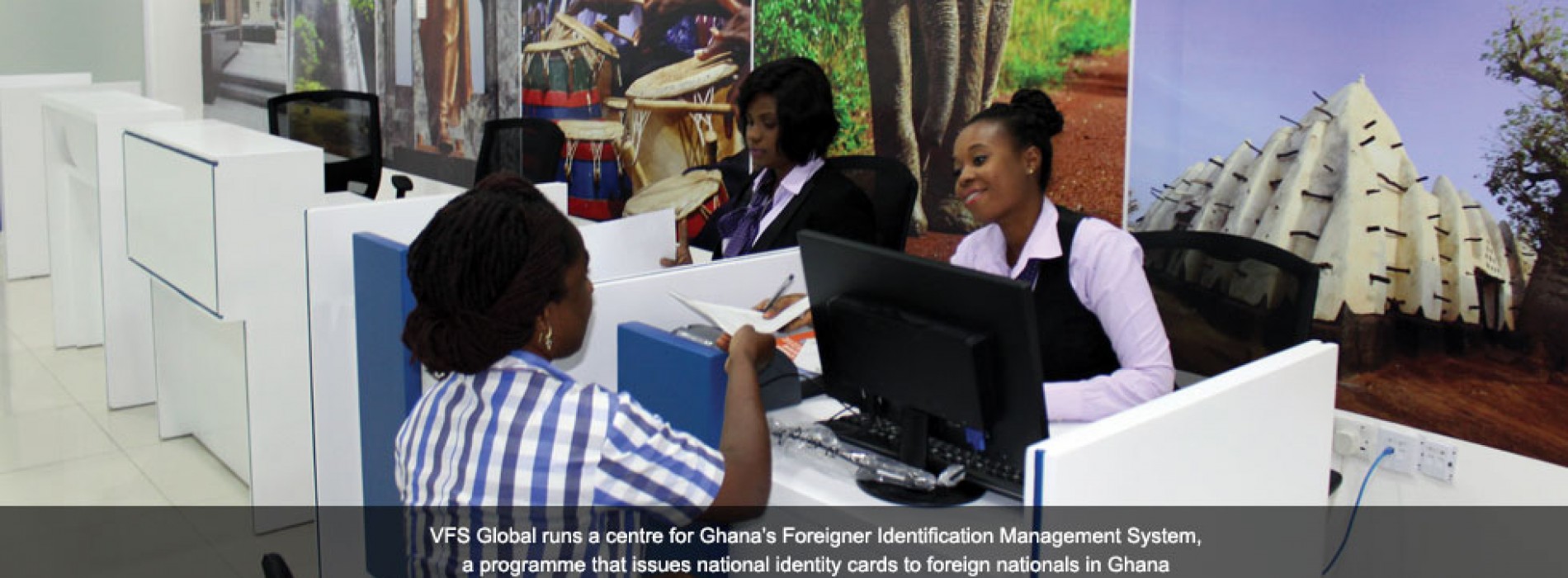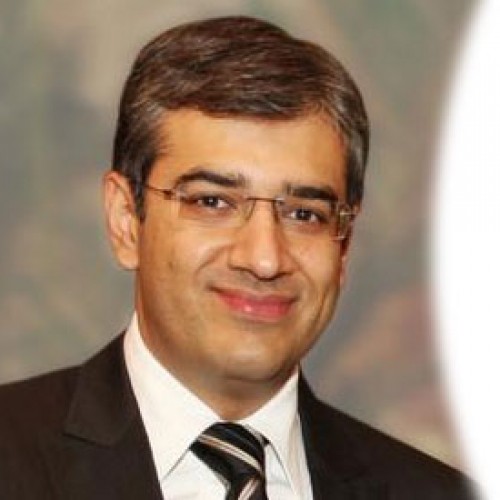A stellar rise to the top
Q&A with Zubin Karkaria
From joining travel firm SOTC as a young tour manager in 1991 to becoming the first Indian to head the 109-year-old Zurich-based Kuoni Group, as its Chief Executive Officer, early last month – it has been an action-packed rise to the top for 47- year-old Zubin Karkaria, a native of Mumbai’s Dadar Parsi Colony. The turning point in Karkaria’s career came in 2001 when, as COO of Kuoni’s outbound tour business, he pitched the idea of offering visa processing services to the US consulate in Mumbai – an idea unheard of at the time, but one that touched a nerve, with embassies and consulates struggling to keep pace with the onslaught of visa applications. Today, visa process outsourcing is a foregone conclusion for most diplomatic missions worldwide. Along with the exponential increase in travel in the last decade, VFS Global has grown at breakneck pace. It is now a $276 million (FY14) company with operations in 122 countries, holds approximately 50 percent market share, and has become one of the Kuoni Group’s core businesses. It was certainly a sign of things to come when in 2013, the company’s success ensured Karkaria a place on the parent company’s executive board, and now he has been appointed CEO of the Kuoni Group on November 5, 2015. In this interview with TnH, Karkaria talks about his journey, and the challenges that lie ahead.
I’ve been associated with the Kuoni Group for over 20 years now. I’m grateful for the opportunities I have been provided that have helped me grow. With a fully committed team behind me, I have no doubt we will be able to implement our plans, and expand and grow successfully.
Q. Congratulations on your new role. Having been in the company for two decades now, how does it feel to have reached this position?
Thank you for the good wishes. It’s a privilege and honour for me to take on this role, and I am excited to embark on this new journey the group is undertaking. I’ve been associated with the Kuoni Group for over 20 years now, and I’m grateful for the opportunities I have been provided that have helped me grow. With a fully committed team behind me, I have no doubt that we will be able to implement our plans, and expand and grow successfully.
Q. You joined Kuoni very early in your career. What made you decide you wanted to stay on and grow here?
Well, my affinity for this sector began while I was still in college, helping out a friend at his travel agency. At that time, the travel industry was a highly aspirational field to be in. The pure excitement of dealing with international travellers and the glamour associated with it had me hooked! When I joined SOTC (as the company was called then), the industry was at the start of a phenomenal growth phase and I was given a lot of responsibility. That period, with its sheer magnitude of challenges, put me on a steep learning curve and allowed me to bring a lot of value addition to my role. When Kuoni acquired SOTC in 1996, the company took a quantum leap and became India’s No. 1 travel company. This resulted in various opportunities and guaranteed resources to pursue them at a frenetic pace. One of the opportunities we pursued was, of course, VFS Global. VFS Global gave me a tremendous experience of building a truly global business from scratch, where we had to set the benchmarks and develop systems and processes for the entire industry.
Q. What will be your key priority as CEO of the Kuoni Group?
Based on the accelerated implementation of the Group’s strategy, we will be focused on offering new products and services across our three divisions, faster and better. That will be my top priority – to make all three divisions more dynamic to compete in a digital environment. The idea is to reduce our corporate and support function costs, and make all three divisions almost completely autonomous and self-sufficient. With the group travel business (GTS), we are focusing on restructuring and rationalizing the cost-base of this division to enhance profitability. We see strong potential in this business as well as the global travel distribution business (GTD), which has grown consistently. I’m confident our implementation of the strategy defined earlier in 2015 will lead to stronger performances across the board.
Q. You have been at the helm at VFS Global for 14 years. How do you plan to balance the additional (and larger) portfolio at the Kuoni Group?
It’s early days yet, but we have been planning the transformation of the Group for some time now, so I’ve had time to immerse myself in the challenges we face at the group level, especially in my role as a member of the Executive Board since 2013. My main priority will be to ensure that the Group stays committed to its new growth trajectory and I am aided by a very able team to help us accomplish that. As far as VFS Global is concerned, while I will continue to remain responsible for this division, one of the key tenets of our structure is empowerment of leaders at different levels, regionally and centrally. The top management at VFS Global is fully equipped to manage daily operations and drive new businesses, and I have full confidence in their ability to run it successfully while I prioritise my time.
We will be focused on offering new products and services across our three divisions, faster and better. My top priority will be to make all three divisions more dynamic to compete in a digital environment. The idea is to reduce our corporate and support function costs, and make all three divisions almost completely autonomous and selfsufficient.
Q. Having been a pioneer in the visa process outsourcing space, would you say your ability to walk the line between being a corporate professional and an entrepreneur is the main reason you were chosen to lead the restructured Kuoni Group?
When we started VFS Global, our parent company Kuoni was already a market leader in the sector, but as pioneers in this new space, we had to think like entrepreneurs on how we could persuade our clients to think outside the box. Frankly speaking, our strong growth in 14 short years, would not have been possible without the complete empowerment and support offered by the Kuoni leadership, especially through the early years. That level of ‘entrepreneurial ideation’ is definitely one of the key strengths we will exploit even at the Group level, as we strive to innovate and infuse a fresh perspective into the business.
Q. Let’s talk a little about VFS Global – the idea that really catapulted you into the limelight. How did you come up with the idea of visa process outsourcing?
Well, back in the Nineties, in a newly liberalized India, we were seeing an exponential growth in the travel sector. Being part of Kuoni, which was the leading travel company, we had firsthand knowledge of the difficulties travellers faced and the solutions we were pitching to client governments were unique at the time. Our model was based on handling all non-judgmental aspects of the visa process for client governments, including setting up application centres in multiple cities (at the time, applicants had to travel to either Delhi or Mumbai), air-conditioned facilities, and other conveniences, for applicants.
Once this was conceptualized, we were able to build consensus for the idea within the company. It took some time to persuade potential clients – we conducted 6-month-long surveys of applicant needs, and faced long gestation periods (of up to 18 months) – before we were able to win our first contract with the US Consulate.
Q. What were the challenges you faced after setting up VFS?
Serving a sovereign government is a serious and sensitive proposition. Visa process outsourcing as a concept was unheard of, it was unchartered territory. Getting that first contract was challenging – we had to convince the government not only of our competence in providing this service, but of the very need for such a service!
Another challenge was our first global rollout for UK in 2007, when, from operating in 11 countries, we had to expand operations to 33 countries across seven regions, in a matter of months. But it was also a gamechanger for us. Once we rolled out successfully, it allowed us to showcase our capability worldwide, and in a sense, proving we were here to stay.
Q. How many countries use VFS Global services now and what other services does VFS offer?
Today, VFS Global serves the interests of 48 client governments with operations in 122 countries across five continents. We have almost 1900 application centres and have processed over 110 million applications since inception.
In addition to the visa processing services, we have ventured out into new verticals. Our Citizen Services vertical supports local and state government bodies with a range of in-country services. These include permit facilitation centres in South Africa and Ghana, citizen facilitation centres for the local municipal corporation in Mumbai, resource centres for overseas workers in Delhi, and processing of building plans for the Bhubaneswar Development Authority in Odisha.
We also offer Identity Management solutions, in which we have developed strong core competence in setting up and managing high-end biometric projects and in developing and integrating end-to-end biometric solutions. We will continue to build on these verticals.
Q. Both the travel and visa processing businesses have several big players worldwide. What is your game plan to stay ahead of the competition?
In a healthy market, everyone is a competitor. Among our three businesses, VFS Global is in a comfortable position, having captured approximately 50 percent market share. But the company constantly pushes itself to offer new services, develop new technologies, and maintain its leadership position by diversification into allied services. For example, we are launching a mobile app for UAE visas soon, which is the first time anyone, anywhere in the world can apply for this visa through an app. We have also rolled out on-demand mobile biometrics for ‘doorstep biometric enrolment’ for UK visas in China, and we are looking at introducing this in India as well.
We are also very proud of LIDProTM, which we developed for Finland’s Ministry for External Affairs. It is a solution that enables remote visa processing, and is considered a breakthrough innovation that has won us much recognition.
For the other two businesses, the focus will be to introduce faster and better services and products. Speed and time-to-market are critical success factors. With intense competition, opportunities remain as opportunities for a very short time, so we need to keep our foot on the pedal with a strong focus on the APAC region as the biggest contributor of growth in this sector. Particularly in group travel businesses, which we are going to restructure, we will reduce complexity and discontinue services that do not add value. On the other hand, better and more customer-focused offerings will be launched.
Q. What are your future plans for VFS? Will visa processing remain the core of the business or will its share come down?
We see strong growth potential in our Identity Management and Citizen Services verticals and here too, innovation is a key business driver for us. With technology specialists like HP and Veridos (with whom we recently entered into a partnership to develop large-scale identification infrastructure), we will continue to develop advanced solutions that can expand our service offerings.
That said, travel worldwide continues to grow – the sector contributes to almost 9.8 percent of the world GDP – and more governments today accept the benefit of the outsourced visa services model, for being cost-effective while maintaining the integrity of the process. So we certainly foresee visa processing to remain at the core of our business going forward, but as our IM & CS business grows at a faster pace, share of visa processing will naturally come down.
Q. What continues to be challenges for you with regard to visa processing?
Given the sensitivity of data and information we deal with, ensuring quality control by our systems across people and geographies – 24×7, 365 days of the year – in an uncompromising manner, is one of our biggest focus areas.
Q. What will you have to do different now that you are managing a much larger portfolio?
In a dynamic industry as ours, it is imperative to come up with new ideas to stay ahead of change. Some fundamentals to establish a healthy business stay the same: establish trust with your core team, empower them to function as entrepreneurs, and encourage a culture of mentorship throughout the organization. These are the key factors that have shaped my own career and I strive to adhere to them in any project I have to accomplish.
Q. How do you unwind? Which is your favourite location for a holiday?
It’s always a challenge to find time to relax when you’re constantly between time zones! Travel has been my career and the ability to explore virtually every corner of the globe is no doubt one of the better aspects of my job! But irrespective of the location, the time I really unwind is on short holidays with my wife and three kids – our busy schedules don’t leave us much quality time to spend together, and we look forward to these holidays!
You might also like
THE SIGNS OF OUR TIMES – LEADING LUXURY HOSPITALITY TRENDS IN INDIA
India’s rich cultural tapestry unveils a country with many faces, each unraveling fresh experiences that has always enchanted visitors. At different moments, India can be indelibly spiritual, architecturally glorious, astonishingly
NOT ALL HEROES WEAR CAPES!
By Nidhi Beriwala Ever wondered how gold is made? The process is counter-intuitive. In the toughest heat,it gets harder while other metals just melt. Similarly, inspiration can come from anywhere
Don’t let your guard down
It’s testing time. Fight the lurking tendency to become impatient when you need to more patient. Don’t give in to the fatigue of living a prolonged indoor life. By Prem








